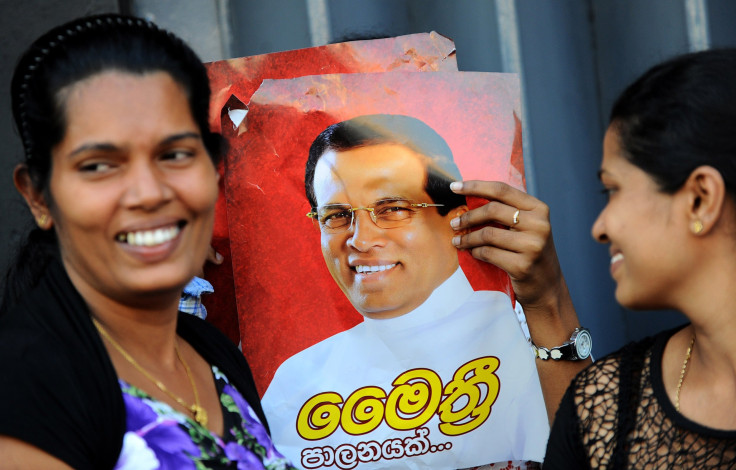Sri Lanka Election Results: Sirisena Topples Rajapaksa

Sri Lankan President Mahinda Rajapaksa has conceded defeat to former health minister Maithripala Sirisena in the country's presidential elections, which were held on Thursday. Over 15 million people cast their votes in the elections that were held two years ahead of schedule.
Sirisena, previously expected to win the majority of votes from Sri Lanka’s ethnic minorities, effectively ended Rajapaksa’s expectations to return to office, as the country's Department of Elections said that of 3.26 million votes counted so far, Sirisena had taken 51.3 percent and Rajapaksa was trailing on 46.9 percent. Other candidates accounted for the rest of the votes cast, according to Reuters.
There were 19 candidates contesting the presidential position. Around 15 million voters all over the country turned in their votes in 12,314 polling stations in the 22 administrative districts. More than 70,000 police were deployed for the elections, said the Polls Chief, according to the official government news portal News.lk, focusing especially on areas where violent incidents had been reported.
Local media have reported that some voters in northern Sri Lanka were prevented from casting their ballots, where the country’s elections monitor said a hand grenade exploded near a voting station in the northern Jaffna peninsula in the Tamil minority heartland; there were no injuries. Voter turnout was reported to be good in minority Tamil-dominated areas where voting turnout had been previously poor, standing around 70 percent.
The incumbent President Rajapaksa had been accused of corruption and nepotism, according to media reports. Rajapaksa, who has been in office since 2005, had called in last November for elections two years ahead of schedule, anticipating an easy win, following the country’s amendment to its constitution removing the two-term limit on the presidency.
Some have even speculated that Rajapaksa called for the elections to coincide with the Pope’s visit, in hopes that the papal presence might help quell any violence that might arise following the elections’ results. "Violence is on the rise and it seems to be a well-calculated strategy to prevent the opposition campaign," Keerthi Tennakoon, executive director of the Campaign for Free and Fair Election, told Reuters.
Rajapaksa enjoyed a surge of popularity for ending the nearly three-decades-long civil war with the rebel group LTTE, or Tamil Tigers, winning 58 percent of the votes in the 2010 elections. However, he has been criticized as having “plundered the country, government and natural wealth,” elections competitor Sirisena reportedly said last November. Rajapaksa looked set to win the elections until the sudden defection of Sirisena and his announcement to run for candidacy a week after elections were announced.
The fight for the top spot was so close that the uncertainty caused the Sri Lankan rupee to drop to a 16-month low. “Investors are bit cautious ahead of the results,” Shehan Bartholomeuz, head of research at LOLC Securities Ltd. in Colombo told Bloomberg. “Their concern is that if there isn’t a clear mandate, it won’t be good for the economy and the markets.”
© Copyright IBTimes 2024. All rights reserved.





















